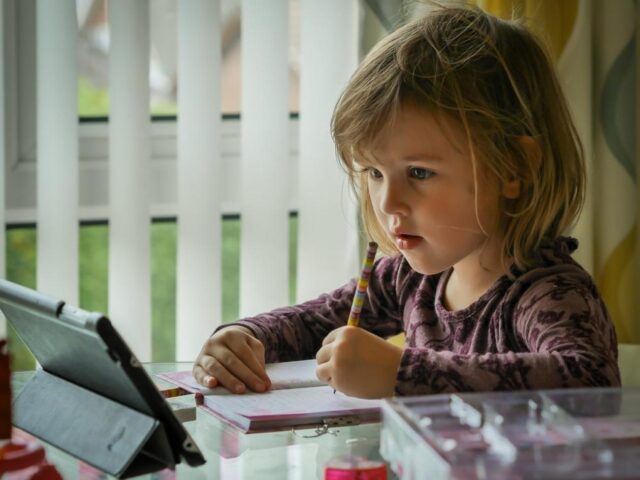The research has been published in a new book called Primary and Secondary Education During Covid-19. The book features research on the educational impact of Covid-19 on students and teachers from across the world, with data from Understanding Society being used to investigate the experience in the UK.
One of the chapters that heavily uses Understanding Society data is Education in the time of COVID-19 in France, Ireland, the United Kingdom and the United States: the nature and impact of remote learning. This chapter by researchers from the Directorate for Education and Skills, Paris, focuses on parental involvement in remote learning during the pandemic.
Overall, it found that younger children received more assistance from parents than older children.
Key findings
-
In France and the United Kingdom, in addition to having a greater probability of receiving assistance from their parents/guardians, younger children (in lower grades) also received more assistance than older children (in higher grades).
-
In both France and the UK, the proportion of parents assisting their children declined with the age of the child and the child’s level of education.
-
A large proportion of parents in France and the UK reported that they provided very little support to children enrolled in upper-secondary education.
-
In the UK, 60% of parents of children in lower secondary education and 90% of parents of children in upper-secondary education helped their children for less than an hour per day. The average time devoted by parents in the UK to assisting children was estimated to be two hours per day forprimary school children.
-
In both the UK and the US, slightly less than half of the parents/guardians of school children appeared comfortable in their ability to support the home schooling of their children.
-
Between 10-20% of students discontinued their school learning in some countries during the “remote learning” period.
Parental class and home schooling
The authors commented on further findings, “There is little evidence of a close relationship between parental socio-economic status and the provision of assistance by parents in the available studies. In the UK, no relationship is observed between the level of parental education or income and the “provision of home schooling” or the hours of assistance provided by parents.
“However, it is possible that parents with higher levels of education and income had less available time to assist their children during the period of lockdown than their less-educated and lower-paid counterparts. The incidence of temporary inactivity (e.g., furlough, temporary layoff) during lockdowns was lowest for employees in management and professional occupations—i.e., occupations associated with high levels of education and high incomes.”
The book is open access, you can read the full text here
Covid 19EducationFamily and householdsYoung people



